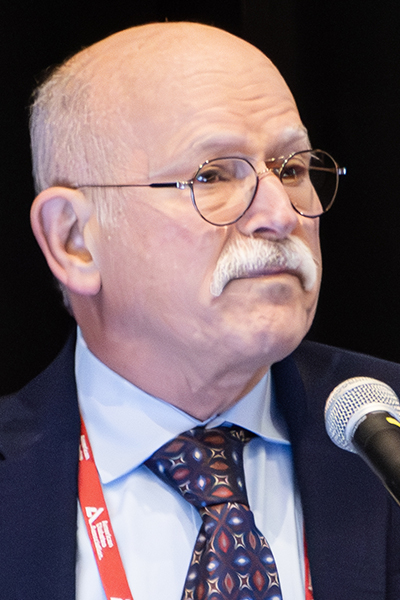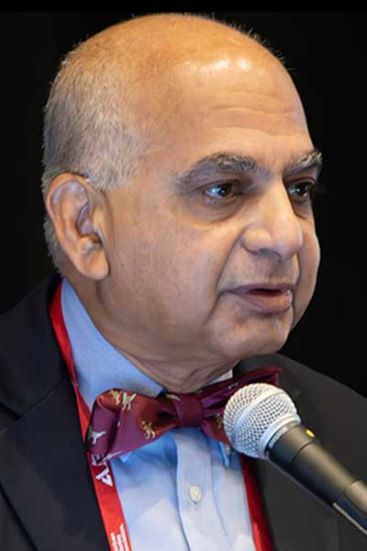We are proud to spotlight the groundbreaking work of Dr. Steven B. Heymsfield and Dr. Vivian Fonseca, both esteemed LA CaTS Center Investigators, who presented pivotal research at the 85th Scientific Sessions of the American Diabetes Association (ADA) on June 23.
Optimizing Weight Loss: The BELIEVE Study
 During the symposium titled Can We Improve the Quality of Weight Loss by Augmenting Fat Mass Loss while Preserving
Lean Mass?, Dr. Heymsfield, Professor of Medicine at the Pennington Biomedical Research Center,
shared key efficacy data from the BELIEVE study, which investigates the combination
of Bimagrumab and Semaglutide.
During the symposium titled Can We Improve the Quality of Weight Loss by Augmenting Fat Mass Loss while Preserving
Lean Mass?, Dr. Heymsfield, Professor of Medicine at the Pennington Biomedical Research Center,
shared key efficacy data from the BELIEVE study, which investigates the combination
of Bimagrumab and Semaglutide.
“Obesity is a disease of excess adiposity, and the optimal treatment would be to promote mainly fat loss,” Dr. Heymsfield explained. He emphasized that traditional weight loss methods often result in the loss of lean muscle mass, which is not ideal. The BELIEVE study aims to enhance the quality of weight loss by maximizing fat reduction while preserving lean muscle—an approach that could redefine obesity treatment strategies.
Targeted Diabetes Treatment: The CATALYST Trial
 Later that afternoon, Dr. Fonseca, Professor of Medicine and Pharmacology, Chief of
Endocrinology, and Assistant Dean for Clinical Research at Tulane University School
of Medicine, presented final results from the CATALYST Trial in the session Treatment of Hypercortisolism in People with Difficult-to-Control Type 2 Diabetes. Dr. Fonseca is also the Director of the LA CaTS Professional Development Core and
Co-Director of the Clinical Research Resources Core.
Later that afternoon, Dr. Fonseca, Professor of Medicine and Pharmacology, Chief of
Endocrinology, and Assistant Dean for Clinical Research at Tulane University School
of Medicine, presented final results from the CATALYST Trial in the session Treatment of Hypercortisolism in People with Difficult-to-Control Type 2 Diabetes. Dr. Fonseca is also the Director of the LA CaTS Professional Development Core and
Co-Director of the Clinical Research Resources Core.
The trial revealed that hypercortisolism may be a contributing factor in over 1.125 million cases of difficult-to-treat type 2 diabetes in the U.S. The FDA-approved drug mifepristone was shown to effectively treat hyperglycemia secondary to hypercortisolism in adults with Cushing syndrome and type 2 diabetes or glucose intolerance. Dr. Fonseca noted significant reductions in the use of fast-acting insulin and sulfonylureas, and a decrease in long-acting insulin doses. “This is a more precise way of treating diabetes than giving any drug that comes along,” he said. “You identify an abnormality and treat that abnormality.”
These presentations underscore the innovative research being led by LA CaTS Center Investigators and their commitment to advancing treatment strategies for obesity and diabetes. Their contributions at the ADA meeting reflect the Center’s mission to improve health outcomes through translational research excellence.
